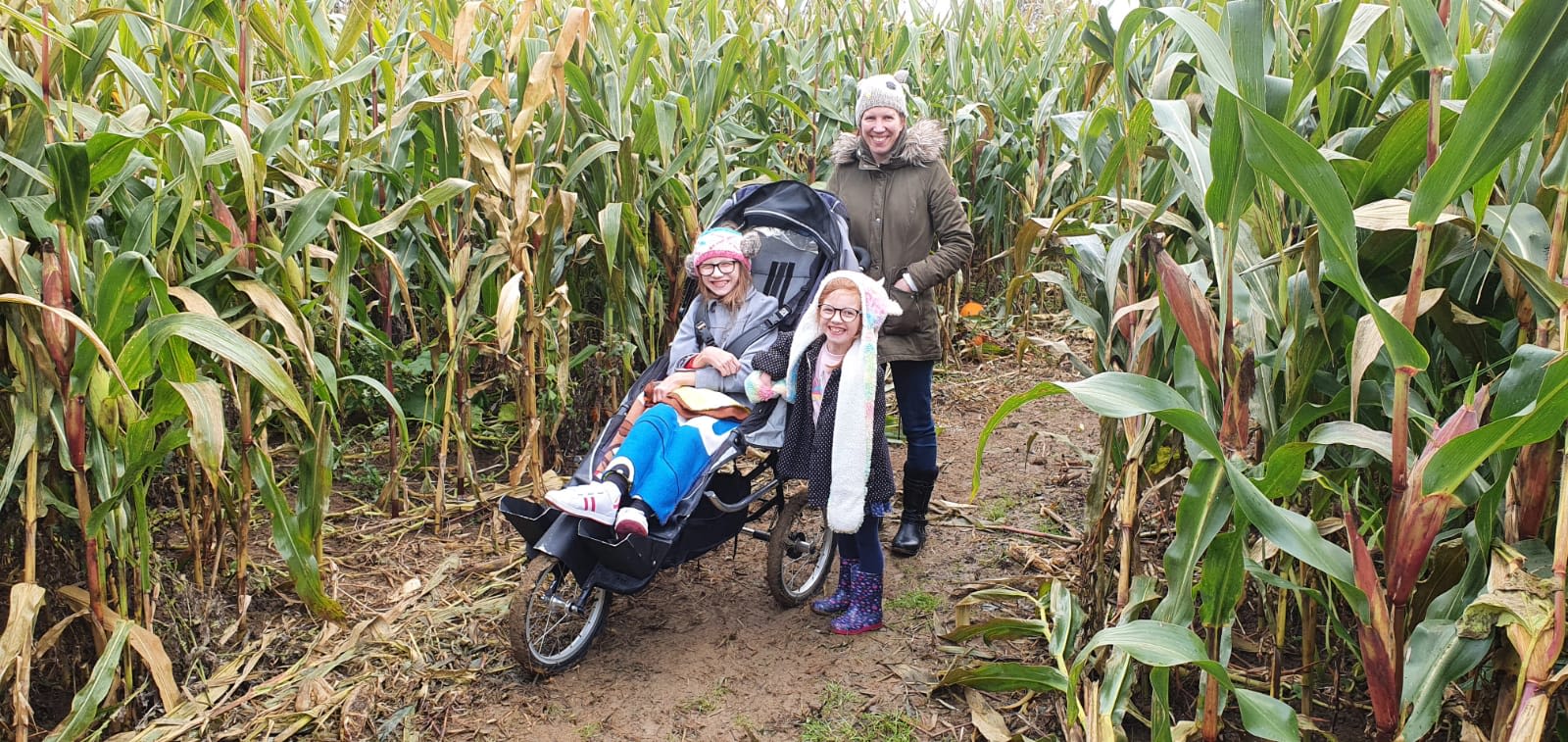Lily's story
for Rare Disease Day

This year Lily celebrated her 13th birthday. Her ‘bestie’, Chloe, who she’s known since primary school, slept over. They watched a film. They shared snacks. And they laughed – a lot! Normal teen stuff.
“Here she is at 13, still pushing the boundaries. We used to laugh about the fact Lily had an ‘energy’ disease, because she had so much energy. But, now she’s hit her teens, it’s slowly catching up with her. She gets much more tired. Before, she was on vitamins to boost her energy levels, now she also has strong medication to manage her condition as it’s progressed.”

Lily was two and a half when she was diagnosed with Mitochondrial Disease (Mito). Mitochondria are present in every cell in our bodies, generating most of the energy we need to live. If they fail, the body struggles to thrive. A bit like a fading battery.
“We noticed Lily was walking differently to other children. When she ran, she would fall over. She napped for hours in the afternoon, totally exhausted. Her hand would form into a fist that would only unclench, just slightly, when she was asleep.”
Referred to the Child Development Centre in Bury St Edmunds, Lily was initially diagnosed with cerebral palsy. But that didn’t quite fit. After further tests and scans at Addenbrooke’s Hospital, they were told Lily had ‘Mito’ which would be “an up and down road, similar to Parkinson’s.”
Research shows that 1 in 200 babies are born with genetic changes that can cause Mito. Lily’s younger sister Willow, 8, has also been diagnosed, but because she was diagnosed early – at four months – her experience has been quite different.
“We call the girls healthily unhealthy. They have this rare disease, but they are managing okay."
One in 17 people will develop a rare disease at some point in their life - so not that rare at all. Both Lily and Michelle say Rare Disease Day is really important for raising awareness.
“People sometimes stare and whisper. I didn’t used to notice it much, as I’d be busy steering the wheelchair, but now Lily’s older, and after everything that’s happened in the world since Covid, she’s lost confidence. She’s much more aware and it makes me sad,” says Michelle. She tells people that it’s okay to ask questions. She explains that Lily has Mito and her legs don’t work as she’d like. If people are interested, Michelle will give them a leaflet about the condition.
“I worry about people looking at me and thinking I’m different. I sometimes feel anxious and worried."
Having a rare disease can affect your mental health, which is why Lily thinks Cambridge Children’s hospital, where mental health and physical health are treated together, can only be a good thing.
Day to day, Lily loves playing the online game Roblox, and listening to The Vamps. She attends mainstream school. 'Team Lily' – a group of teaching assistants – are there to support her. It’s a stone’s throw from home, but like most teenagers, Lily isn’t too keen!
Despite having a rare disease, Lily has only been in hospital as an inpatient twice. Once when she was diagnosed and again last September for a leg operation. Surgeons lengthened her muscles, allowing her to straighten out her leg for the first time in months. Lily was in hospital for twelve days and off school for sixteen weeks.



“Lily and all kids with rare diseases are just the same as any other. They want friends, they want to be included, cared for and feel safe. They want to do all the things that kids enjoy.”


What would be important for Lily if she had to visit Cambridge Children’s hospital?
“Staff that are friendly and they understand and don’t rush.” It’s important to Lily that staff take time to explain what’s going on and help children understand, no matter how young they are.
Lily says she’d like an Xbox in the hospital, but also a way to play games with her family or friends back home, if they can’t visit because of Covid. Ideally, Lily says she would like to be at home as much as possible, in her own bed, with her own things.

"As a parent, if you’re there in hospital supporting your child, you want to be looked after, too."
If your stay is longer than anticipated, you need somewhere to wash your clothes, says Michelle, who ended up doing washing in the sink with handsoap. Additionally, there needs to be somewhere to dry them, rather than hanging them around your hospital bed.
Food is important. There needs to be somewhere to freeze homemade meals, and a microwave. At the Norfolk and Norwich, parents could pay a pound for any hospital food that wasn’t eaten by the children. "This took away some of the stress around where the next meal was coming from," explains Michelle.
Finally, it’s the little things that make all the difference. “Lily didn’t like to be left alone on the ward, so it would have been great to be able to make a cup of tea when I wanted it, without having to buzz and then wait half an hour for someone to come in!”
Thank you Lily and Michelle for
sharing your story

Lily is a member of Cambridge Children's Network and has been involved in helping to design the new hospital. If you'd like to join Lily and many other children and young people, please find the sign up details here.
Lily and her sister Willow are also members of Cambridge Rare Disease Network's 'Unique Feet', a fun and supportive group for Rare families. Find out more here.

